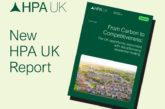
The Association of Plumbing & Heating Contractors (APHC) is reminding plumbing and heating businesses to check the legal status of the working relationships that they have with individuals.
The advice is being issued following the recent legal case involving a man who worked for a window company on a self-employed basis, but following his dismissal, a UK tribunal ruled that the man should have been classified as a worker and as such had workers’ rights. The EU court has recently ruled that the worker was also entitled to his untaken leave at the company which has led to him bringing a claim for £27,000 of holiday pay.
John Thompson CEO of APHC, commented: “My understanding of the ruling means that employers who have miscategorised workers as self-employed, could now be liable for back holiday pay when a worker’s employment is terminated. This could be very pertinent to the plumbing and heating industry as the decision could mean that companies which routinely use staff on self-employed contracts could face liabilities if that employment status is later challenged.
“It is important to understand that HMRC may regard someone as self-employed for tax purposes even if they have a different status in employment law. This means that employers should check if a worker is self-employed in tax law to understand whether they’re exempt from PAYE and in employment law to see whether they have any employee rights”.
According to HMRC’s website someone is probably self-employed and shouldn’t be paid through PAYE if most of the following are true:
- they’re in business for themselves, are responsible for the success or failure of their business and can make a loss or a profit
- they can decide what work they do and when, where or how to do it
- they can hire someone else to do the work
- they’re responsible for fixing any unsatisfactory work in their own time
- their employer agrees a fixed price for their work – it doesn’t depend on how long the job takes to finish
- they use their own money to buy business assets, cover running costs, and provide tools and equipment for their work
- they can work for more than one client
The website also states that someone is probably self-employed and doesn’t have the rights of an employee if they’re exempt from PAYE and most of the following are also true:
- they put in bids or give quotes to get work
- they’re not under direct supervision when working
- they submit invoices for the work they’ve done
- they’re responsible for paying their own National Insurance and tax
- they don’t get holiday or sick pay when they’re not working
- they operate under a contract (sometimes known as a ‘contract for services’ or ‘consultancy agreement’) that uses terms like ‘self-employed’, ‘consultant’ or an ‘independent contractor’
John Thompson went on to say: “Plumbing and heating contractors also need to be aware of the Construction Industry Scheme. CIS covers most construction work including installing systems for heating, lighting, power, water and ventilation. CIS applies to payments made by a contractor to a subcontractor. Contractors must register for the scheme. Subcontractors don’t have to register, but deductions are taken from their payments at a higher rate if they’re not registered.
“As a trade association we would recommend for plumbing and heating contractors to take action to ensure that their employment and contracting practices are compliant. You may wish to seek legal advice, which a good trade association should be able to provide, to have the relationship between both parties reviewed to provide confirmation of whether a self-employment situation is viable under current law.”
HMRC has an Employment Status Indicator tool which can be located at www.gov.uk/guidance/employment-status-indicator. The tool will give you HMRC’s view on whether a worker is employed or self-employed for tax purposes.
The case now returns to the UK Court of Appeal for a further ruling.












